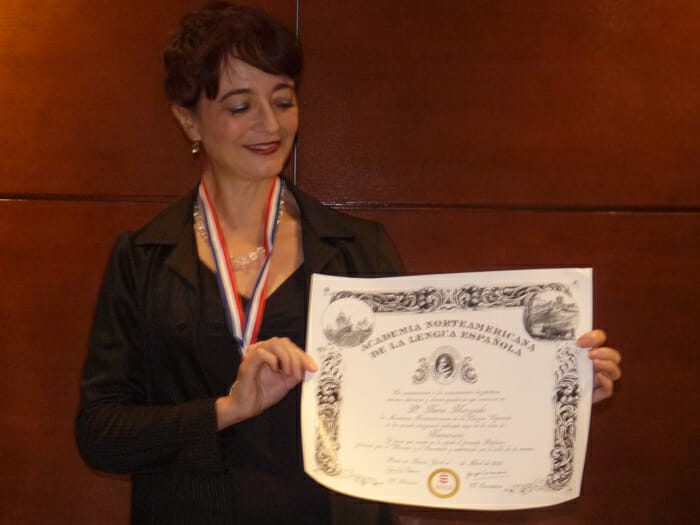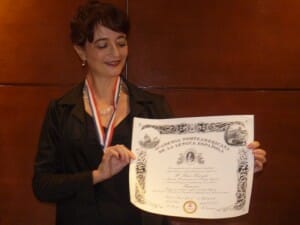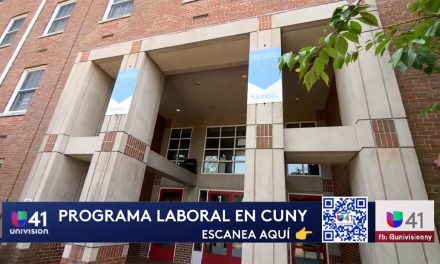College of Staten Island (CSI) professor Nuria Morgado, PhD, Associate Professor of Spanish was officially welcomed to the American Academy of the Spanish Language (ANLE).
Morgado was inducted after a thorough dissection of the philosophical foundations in the poetry of Antonio Machado and a clear description of the contributions of Emmanuel Kant, Johann Fichte and Emmanuel Lévinas to the poet’s thinking.
“From his first book Soledades (1903) to Nuevas canciones (1924) through Campos de Castilla (1912), the first edition of Poesías completas (1917) and the writings of his apocryphal Abel Martín and Juan de Mairena, the theme of Otherness has occupied to a great extent the thought of Antonio Machado, “said Dr. Morgado, who earned a PhD in Spanish literature from the University of Arizona and a journalism degree from the Autonomous University of Barcelona.
She defined the otherness “as the experience of difference, investigating how this difference can challenge the systems of classification, interpretation and social categorization.”
“For Machado,” said the new inductee, during the event held in the auditorium of the King Juan Carlos I Center at New York University, “the concept of otherness is almost always conceived through a poetic-philosophical praxis that tries to understand how the Self interacts with the world, and how the experienced Self learns from this complex interaction. Machado asks ‘how can one establish meaningful communication with the Other in the world?’”
After pointing out that Antonio Machado emphasizes the importance of the Other in the Self, surpassing in this way the rationalistic solipsism of both Leibniz (windowless monads) and that of Kant (categorical imperative), Morgado declared that for the Spanish poet “one must transcend the totalizing thought and adhere to the infinite inquiries about unity and difference.”
Precisely in the presentation of the new inductee, the information coordinator of the ANLE, Daniel Fernández, highlighted the fruitful work of Morgado as editor and reviewer. “I find admirable her task of opening spaces for others to publish,” he said of his new colleague whom he defined as “Catalan from Barcelona, Andalusian, Hispanic and Trans-Hispanic.”
Finally he praised the persistent commitment of Dr. Morgado for “building bridges of communication between literature and philosophy.”

















